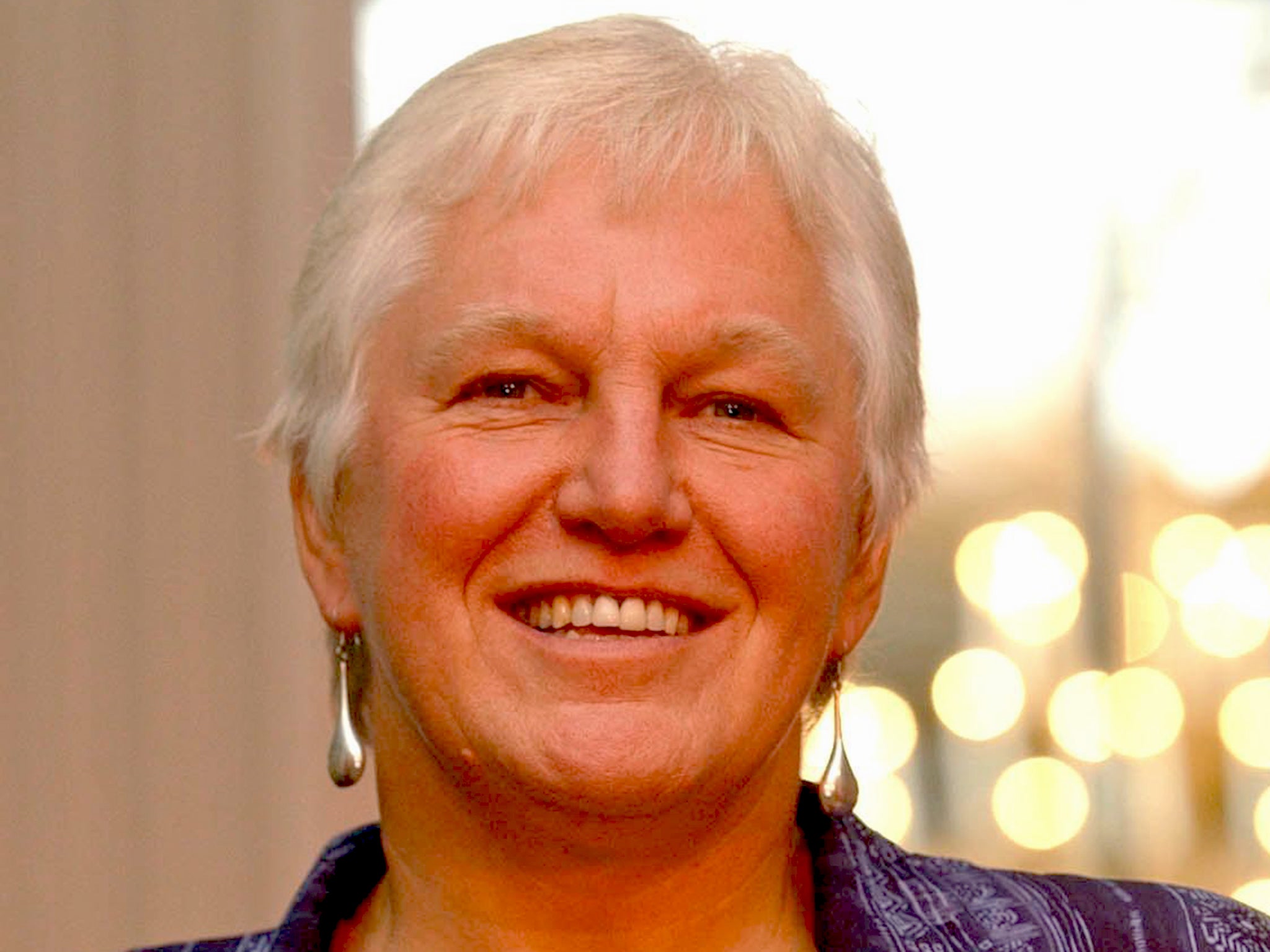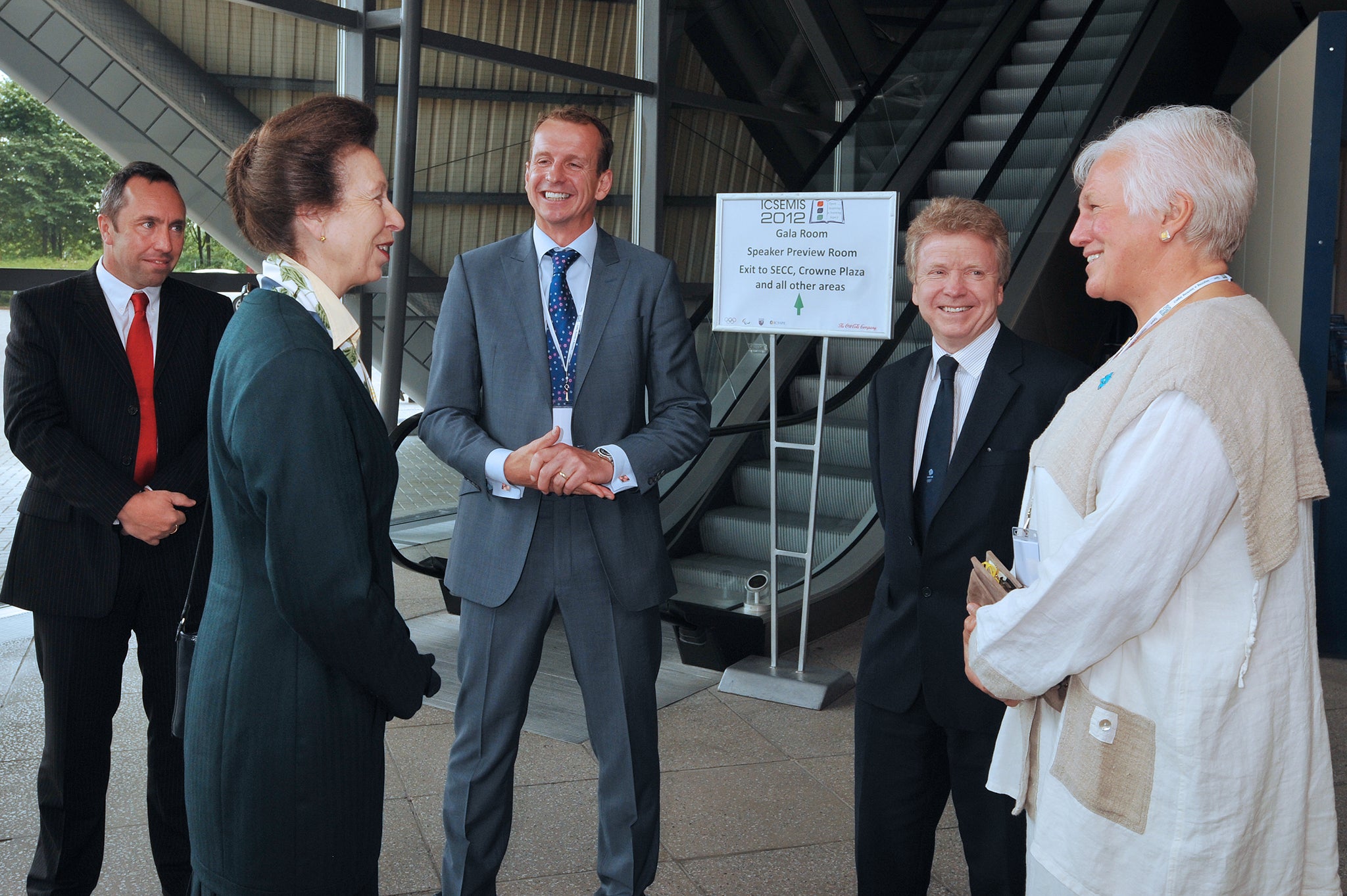Celia Brackenridge: Former lacrosse coach and player who campaigned for the protection of children in sport
She confronted British sporting bodies on their denial of the sexual, physical and emotional abuse of athletes by coaches

Your support helps us to tell the story
From reproductive rights to climate change to Big Tech, The Independent is on the ground when the story is developing. Whether it's investigating the financials of Elon Musk's pro-Trump PAC or producing our latest documentary, 'The A Word', which shines a light on the American women fighting for reproductive rights, we know how important it is to parse out the facts from the messaging.
At such a critical moment in US history, we need reporters on the ground. Your donation allows us to keep sending journalists to speak to both sides of the story.
The Independent is trusted by Americans across the entire political spectrum. And unlike many other quality news outlets, we choose not to lock Americans out of our reporting and analysis with paywalls. We believe quality journalism should be available to everyone, paid for by those who can afford it.
Your support makes all the difference.Professor Celia Brackenridge was truly a woman ahead of her time and a trailblazer in the women’s sport movement.
Long before investigations into abuse received national attention, Brackenridge, a former international lacrosse player and coach, was a tireless advocate for the protection of children within sport and a campaigner for gender equality.
She challenged the UK’s sporting establishment on their denial of the sexual, physical and emotional abuse of all athletes – in particular young females – by coaches, and the institutions that employed them.
Her no-nonsense approach and her findings frightened the sports governing bodies, especially the Football Association and certain Olympic sports, who refuted any allegations of misdemeanours or wrongdoing. Despite widespread allegations of sexual abuse and the 1995 conviction of Olympic swimming coach Paul Hickson for 17 years for the rape of two girls, and indecently assaulting numerous others, Brackenridge was vilified in some sporting quarters.
Overcoming barriers put before her, and inspired by the likes of tennis superstar Billie Jean King, she was a founder and first chair of the Women’s Sport Foundation (1984), which campaigned to raise public awareness of gender inequality and influence public policy, which she later described as “like a Greenpeace for women’s sport”.
A decade later, in Brighton, the organisation held its groundbreaking first world conference, where Brackenridge was a keynote speaker and 82 countries attended; it led to what became known as the Brighton Declaration on Women and Sport, promoting the participation of women at all levels within sport, including coaching and administration. This was eventually taken up by more than 400 international organisations.
As her career progressed, her reputation grew both at home and abroad, and she collaborated with Unicef, the NSPCC, the International Olympic Committee and the Paralympic movement.
She became fearful that some of Britain’s athletes were being used as “medal fodder”. “In some contexts people look on it as the price to be paid, the ‘no pain no gain’ ideology,” she lamented, but added: “Some people have normalised practices in sport that outside would be seen as abuse, such as extreme eating regimes and authoritarian behaviour. We’re very bad in sport about giving athletes a voice – and giving them choices.”
Born in Hitchin, Hertfordshire, in 1950, into a post-war middle class family, Celia Helen Brackenridge was the daughter of John, a dentist, and his wife, Joan (née Stroud), who was then a Women’s Royal Air Force sergeant, and later an ambitious mother who inspired her three children to do their very best.

After moving to Ashford, Middlesex, Celia won a scholarship to Lady Eleanor Holles School for girls in southwest London, where she excelled in music and sport, particularly at lacrosse, athletics and swimming. After gaining excellent A-level grades, aged 18 she confounded her headmistress by choosing to study for a Certificate in Education at Bedford College, the most prestigious college at the time for women’s physical education, rather than going to university. She recalled: “I think I was deemed a failure.”
Upon gaining her certificate, she added an honours year at the University of Cambridge and in 1972 became the UK’s first physical education student to achieve a first-class honours degree. While at Cambridge, she won a double-sporting blue in lacrosse and cricket. She was also a nationally ranked athlete and a member of the track and field club.
“I took great delight in writing to the headmistress and saying I’d got a first, could she put me on the honours board? But I don’t think they did.”
Prominent in raising the status of what was deemed a Mickey Mouse subject, she remembered a comment in a letter to The Times: “Whatever next, coffee studies?”
She completed an MA in PE at the University of Leeds, going on to become a PE teacher at the Bournemouth School for Girls. She was then headhunted to lecture at The Lady Mabel College of Physical Education, which became part of Sheffield Hallam University.
Concurrently, Brackenridge represented England at lacrosse for 14 years, captaining (1979-82) her country in the inaugural 1982 World Cup in Nottingham. She became the England coach (1985-86) for the Lacrosse World Cup in Philadelphia, devising a revolutionary notation system to analyse player performance, and a visiting lacrosse coach and researcher at Harvard University in 1983 and 1984.
By the mid-1990s, it was an open secret that there were child abusers working within professional football, however, when Brackenridge started to raise questions with top clubs about their child protection policies she was met with what she described as “robust masculine attitudes”, opposition, vague responses and, in some cases, a wall of silence.
Her research was controversial and governing bodies were reluctant to listen, believing Brackenridge “was just a troublemaker – trampling on paradise”, but when she enlisted support from the NSPCC and Unicef, sports organisations around the world began to take notice.
In 2001, she began a pioneering five-year, million-pound project, funded by the FA, to assess child protection within clubs and to monitor a new FA strategy to protect junior players. However, after just two years the project was axed as result of internal disputes within the FA, and a disagreement between Adam Crozier, then FA chief executive, and Premier League clubs, which objected to the project.
Her team interviewed 189 children, officials and coaches, uncovering not only sexual abuse but also a culture of bullying and psychological abuse. The research was damning, criticising the lack of safeguards in place at football clubs, with no requirement to conduct a criminal record check, and nothing to stop paedophiles having access to children in changing rooms and showers. The study resulted in her 2006 book Child Welfare in Football, and much of her case material has been used in Clive Sheldon QC’s current football abuse inquiry.
In 2013, she was appointed as child protection expert for Dame Janet Smith’s inquiry into the BBC’s culture and practices during the Jimmy Savile and Stuart Hall years.
In academia, she moved to Cheltenham and Gloucester College of Higher Education in 1994, becoming professor of sport and leisure. In 2005, she became the director of the Centre for Youth Sport and Athlete Welfare at Brunel University, retiring as professor emerita in 2013. She was the convenor of the Sexual Harrassment Task Force for Women Sport International (1994-2010).
Upon retiring, she moved to Wigginton, a village in Hertfordshire, with her partner Diana Woodward, whom she had met in Sheffield. The couple then built a timber eco-friendly, carbon-neutral house, which featured on Channel 4’s Grand Designs in 2012.
Brackenridge continued to advise international organisations, including Fifa, and was a founding board member of the charity Safe Sport International. In 2016, she was recognised with a Sunday Times Lifetime Achievement Award at the Sportswomen of the Year Awards.
She is survived by Woodward and her two stepsons.
Professor Celia Brackenridge, sports scientist, born 22 August 1950, died 23 May 2018
Join our commenting forum
Join thought-provoking conversations, follow other Independent readers and see their replies
Comments